 On February 11, 1858, a young peasant girl was gathering firewood near a grotto in the small town of Lourdes, France. Seeing a “dazzling light,” she looked up at a nearby alcove and saw a “small young lady” standing there. Over the following weeks, this lady continued to appear to the young girl. She spoke of the need for prayer, penance, and faith in God. Word of this mysterious lady rapidly spread. Some believed the peasant girl’s reports. Others believed her to have a mental illness.
On February 11, 1858, a young peasant girl was gathering firewood near a grotto in the small town of Lourdes, France. Seeing a “dazzling light,” she looked up at a nearby alcove and saw a “small young lady” standing there. Over the following weeks, this lady continued to appear to the young girl. She spoke of the need for prayer, penance, and faith in God. Word of this mysterious lady rapidly spread. Some believed the peasant girl’s reports. Others believed her to have a mental illness.
In the face of such skepticism, the claims of the peasant girl were subjected to intense scrutiny from the Church and the scientific community. The grotto, where miraculous healings were already being reported, was investigated by scientists. Patients claiming supernatural cures were examined by doctors. And the young girl was questioned by friends, family members, and numerous Church authorities.
After much deliberation, the Bishop of Tarbes issued the following declaration on January 18, 1862:
“We have . . . been advised by a commission composed of holy, learned and experienced priests who have questioned the child, studied the facts, examined and weighed everything. We have also sought the opinion of scientists and we are finally convinced that the Appearance is supernatural and divine, and that consequently, She whom Bernadette has seen is the Most Blessed Virgin Herself. Our conviction is based, not merely upon the testimony of Bernadette herself, but more especially upon the events which have taken place and which can only be explained by divine intervention.”[1]
Today, February 11, we celebrate the Feast of Our Lady of Lourdes. This day marks the anniversary of St. Bernadette’s first encounter with the Blessed Virgin Mary. The encounter, along with the events following it, have much to teach us—not only about our Holy Mother, but also about Holy Mother Church. By reading the stories of saints like Bernadette, we see how they harmonize with the Tradition of the Church. We see how they exemplify the love of Christ. And we see how they call us to a deep sense of humility.
This call to humility ought to profoundly challenge us. We are all too often stubborn, narrow-minded, and resistant to the possibility of encountering God in new ways. If young Bernadette were to come to us with news of a Marian apparition, we would be among those who called her crazy. Rather than responding in a spirit of charity, we judge, ridicule, and dismiss those whose experience is different than ours.
 This attitude is directly challenged by Pope Francis in his recent Apostolic Exhortation, Evangelii Gaudium. Speaking of popular piety, he encourages us to approach such expressions of the Faith “with the gaze of the Good Shepherd, who seeks not to judge but to love. Only from the affective connaturality born of love can we appreciate the theological life present in the piety of Christian peoples, especially among the poor.”[2] In this light, we can accept devotion to the Blessed Virgin as a valid expression of a faith-filled life. Heeding Francis’ warning to “not stifle or presume to control this missionary power,”[3] we also fulfill Paul’s charge to the Thessalonians when he tells them: “Do not quench the Spirit, do not despise prophesying.”[4]
This attitude is directly challenged by Pope Francis in his recent Apostolic Exhortation, Evangelii Gaudium. Speaking of popular piety, he encourages us to approach such expressions of the Faith “with the gaze of the Good Shepherd, who seeks not to judge but to love. Only from the affective connaturality born of love can we appreciate the theological life present in the piety of Christian peoples, especially among the poor.”[2] In this light, we can accept devotion to the Blessed Virgin as a valid expression of a faith-filled life. Heeding Francis’ warning to “not stifle or presume to control this missionary power,”[3] we also fulfill Paul’s charge to the Thessalonians when he tells them: “Do not quench the Spirit, do not despise prophesying.”[4]
Yet this charge continues: “but test everything; hold fast what is good, abstain from every form of evil.”[5] The Church, while celebrating the piety of the poor and lowly, also respects reason. The investigation of the events at Lourdes demonstrates this fact. Not only was young Bernadette thoroughly questioned, Pope Pius X commissioned the Lourdes Medical Bureau to investigate all reported miraculous healings from a medical, rather than ecclesiastical, perspective. Having scrutinized thousands of people since its inception, the bureau has declared 69 cases to be scientifically inexplicable miracles.[6] This rigorous examination of the facts, respecting the lights of both faith and reason, demonstrates to the world that the Church has both a heart and a mind.
This is all well and good for our ability to trust the Church, and more importantly, our ability to love those around us (particularly the poor). But what of our own relationship with Mary? Do we believe that Our Lady of Lourdes has anything to offer to us? In answer to this question, the Church directs us to St. Louis de Montfort. Writing in the seventeenth century, he laments:
Is it not astonishing and pitiful to see the ignorance and short-sightedness of men with regard to your holy Mother? I am not speaking so much of idolaters and pagans who do not know you and consequently have no knowledge of her. I am not even speaking of heretics and schismatics who have left you and your holy Church and therefore are not interested in your holy Mother. I am speaking of Catholics, and even of educated Catholics, who profess to teach the faith to others but do not know you or your Mother except speculatively, in a dry, cold and sterile way.[7]
 These words, coming from his Treatise on the True Devotion to the Blessed Virgin, ought to resonate with us. Our rational and reductionist view of Christ and his Kingdom too easily precludes devotion to Mary and other forms of popular piety. We refuse to pray the rosary, simply because we have the Eucharist. We do not implore Mary or the saints for assistance, because our hearts have only room enough for Jesus. We completely miss the fact that Christ’s Kingdom is inherently relational, and that we are called to love everyone simply because Christ loves everyone. All of us on Earth and in heaven are inseparably woven together as members of one human family. And, as St. Louis de Montfort notes, the bond between us, Mary, and Jesus is perhaps the strongest of them all:
These words, coming from his Treatise on the True Devotion to the Blessed Virgin, ought to resonate with us. Our rational and reductionist view of Christ and his Kingdom too easily precludes devotion to Mary and other forms of popular piety. We refuse to pray the rosary, simply because we have the Eucharist. We do not implore Mary or the saints for assistance, because our hearts have only room enough for Jesus. We completely miss the fact that Christ’s Kingdom is inherently relational, and that we are called to love everyone simply because Christ loves everyone. All of us on Earth and in heaven are inseparably woven together as members of one human family. And, as St. Louis de Montfort notes, the bond between us, Mary, and Jesus is perhaps the strongest of them all:
She is the sure means, the direct and immaculate way to Jesus and the perfect guide to him, it is through her that souls who are to shine forth in sanctity must find him. He who finds Mary finds life, that is, Jesus Christ who is the way, the truth and the life.[8]
Today, as we celebrate the feast of Our Lady of Lourdes, let us turn to Mary with humble hearts. Let us recognize our own poverty of Spirit. And let us discover anew the God who is love.
This post was written by Brody Stewart, the Promotions Coordinator at Verbum.

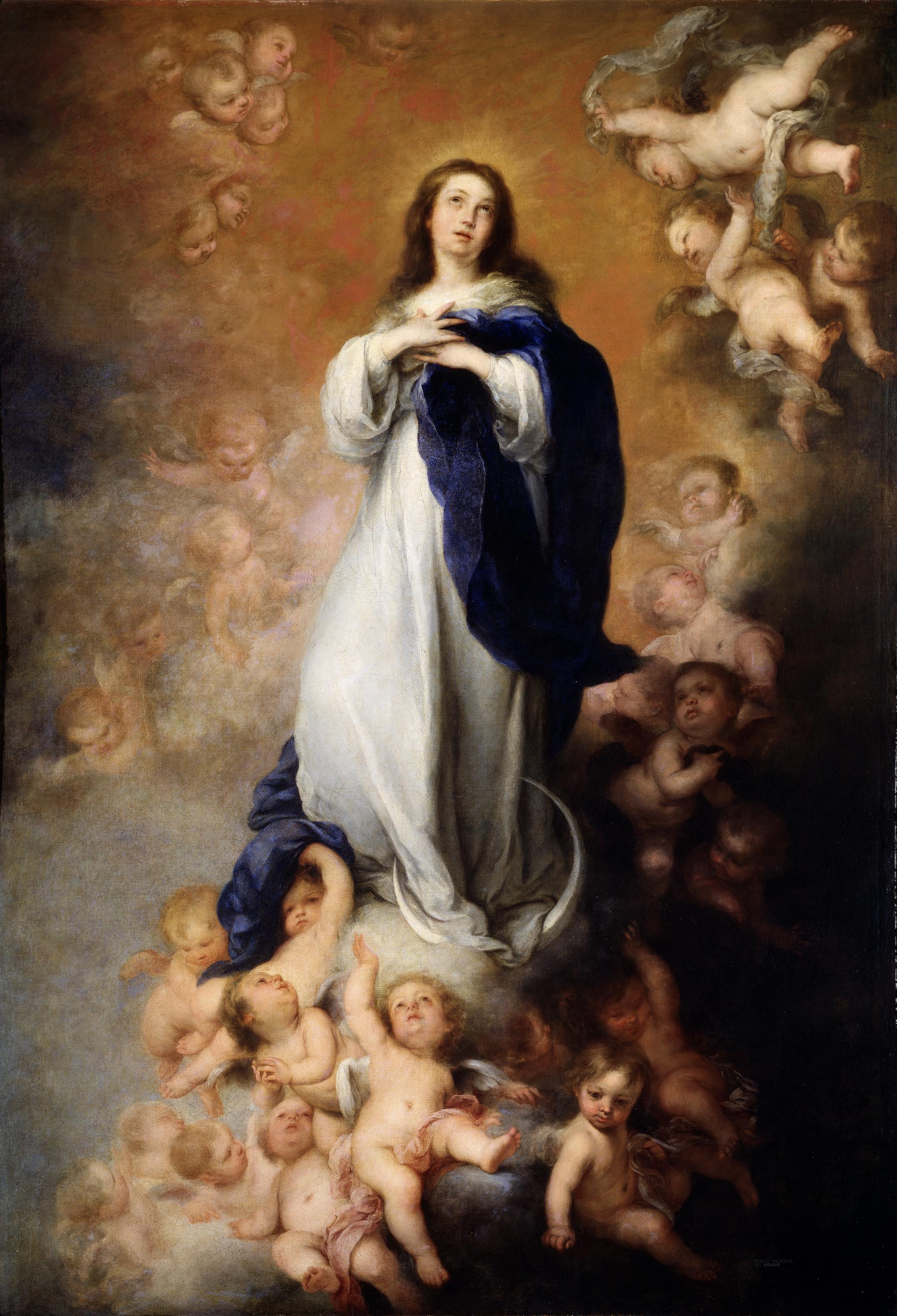
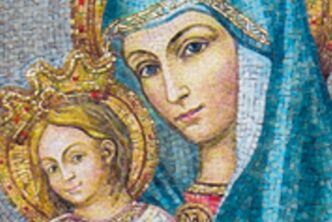
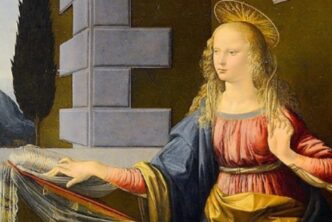
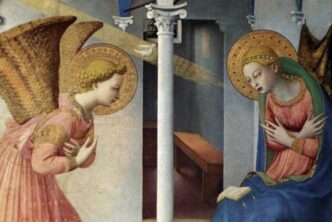
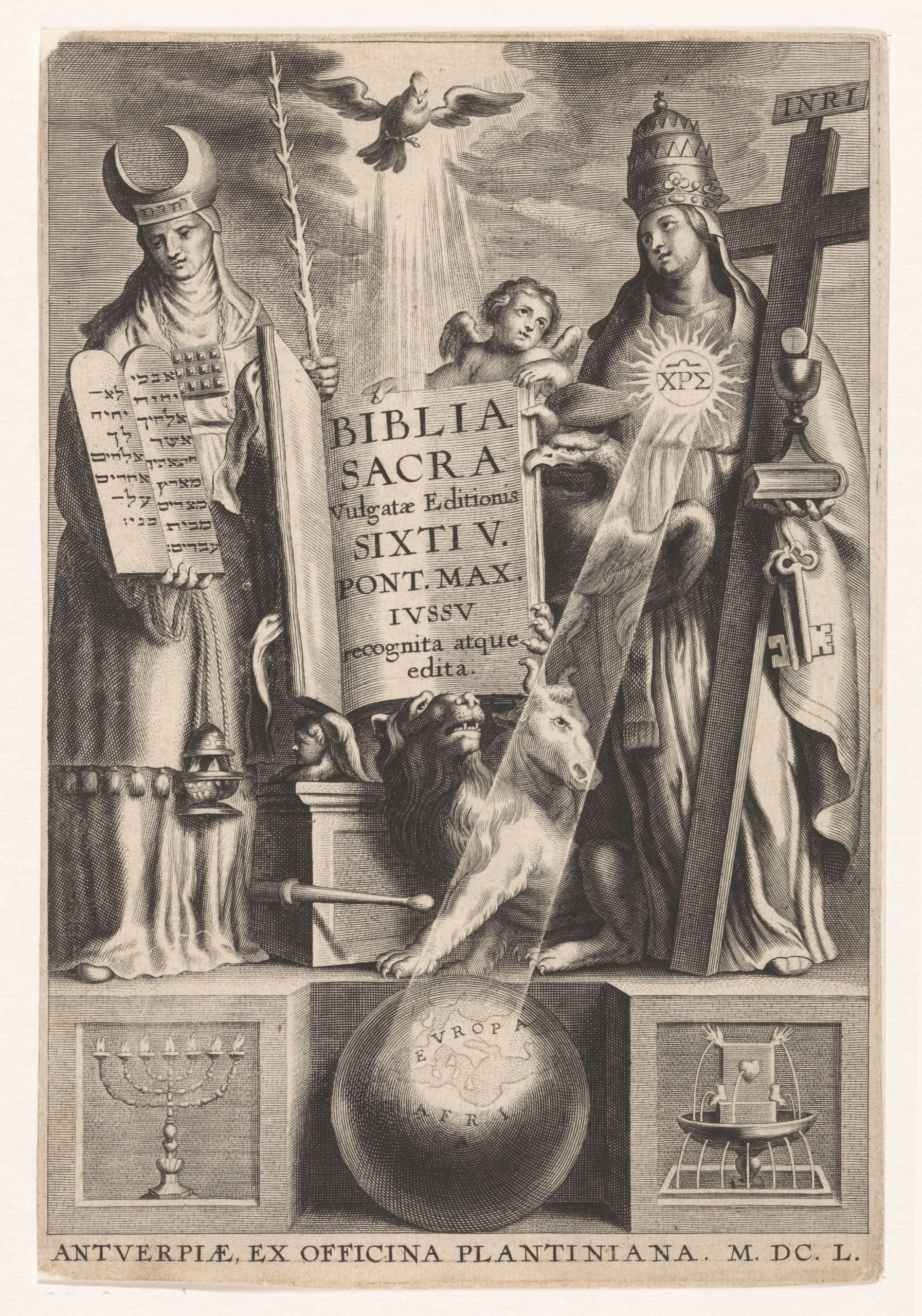
I wish to know the five prophisys given by Our Lady to St. Bernadatte
Thanks for the comment! You can find more information here: https://www.ewtn.com/library/mary/lourbern.htm